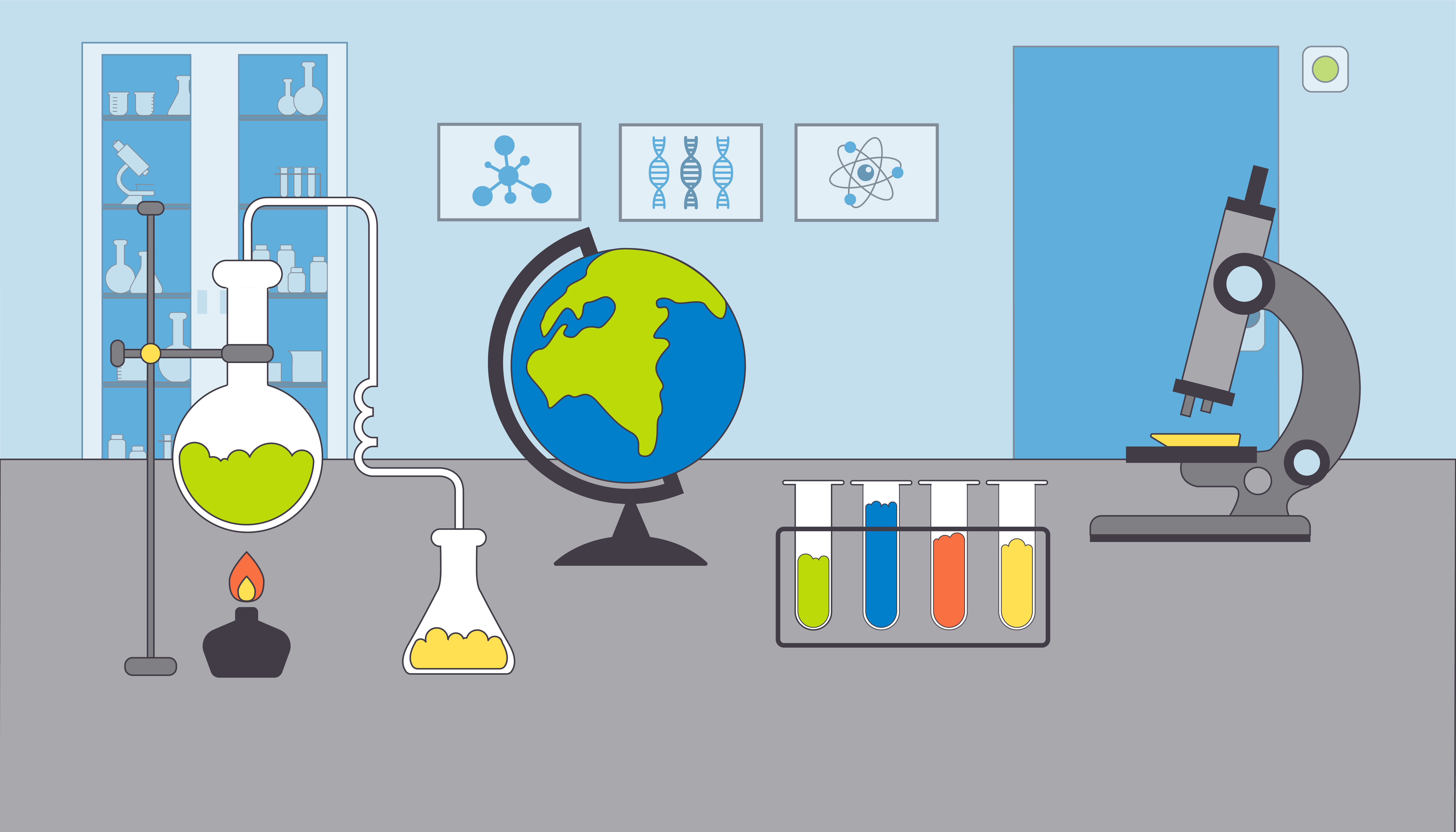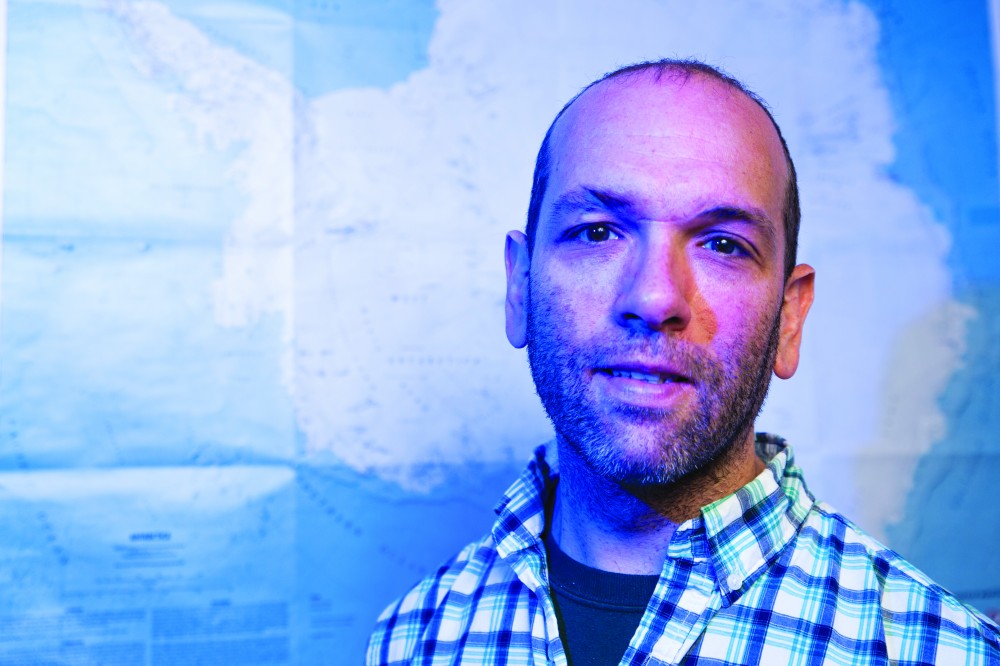Landing Page
Special Projects
This story is part of a series of specially designed stories that represents some of the best journalism The Post has to offer. Check out the rest of the special projects here.


Megan Knapp
3/7/2019
In the wake of the Midwest’s polar vortex, climate change has become an increasingly popular topic of discussion in the public eye.
The discussion centers mostly around the United States, China and other major countries. However, Ohio University associate professor and director of the Scalia Lab, Ryan Fogt, researches climate change in a continent where climate records aren’t as plentiful: Antarctica.
Fogt has several research projects on the continent. All of them revolve around climate change in Antarctica and look at the role that humans may play in the phenomenon. One of Fogt’s projects looks at changes in atmospheric pressure in Antarctica, while another focuses on changes in sea ice melting rates.

Blake Nissen | Photo Editor
Dr. Ryan Fogt, an associate professor in the geography department, poses for a portrait in his office on March 6.
Gathering this data is important, Fogt said, because records on Antarctica are sparser than most other continents. Data from Antarctica only goes back 60 years, and most continents have data spanning back between 100 and 150 years.
“So we don’t know how unique some of the changes are that we’re seeing happen, if they’ve happened before and if they’re happening faster than other places on the planet,” Fogt said. “And so what I’ve been trying to do is take records that we have and extend them back farther into time to understand better the uniqueness of them.”
Fogt’s study on sea ice levels is his most recent project. The lack of data still makes the cause of sea ice levels difficult to pinpoint, but it doesn’t minimize the issue importance.
“The Antarctic Ice Sheet represents the greatest potential source of global sea-level rise,” one of Fogt’s studies reads. “Its response to climate change is a key source of uncertainty for future projections.”
Fogt said that his research on sea ice levels is concerning to some. The research has revealed that sea ice is melting from below, which is contrary to the idea of ice melting due to the atmosphere. That melting occurs when warm water is under sea ice and melts it, contributing to lower sea ice levels. The melting has a profound effect on the high-altitude Southern Ocean, or Antarctic Ocean, according to Fogt’s study.
“We’re seeing those profound changes, which have us concerned,” Fogt said. “A lot of scientists are concerned that these changes are happening quicker and may be irreversible. In other words, they may not stop. They may continue on and lead to sea level rise.”Ryan Fogt
In the U.S, the rise of sea levels can already be seen on both coasts, Fogt said. Sea level rise is one of the many effects of climate change in the U.S. Other effects that have been realized are heavier precipitation events and heat seasons. That could, in turn, harm the Midwest and Ohio’s agricultural systems.
“Corn and soybeans can only thrive under certain temperatures,” Fogt said. “And so, if our climate rises above those temperatures, we will no longer be able to produce or have as much yield from corn or soybeans.”
The polar vortex remains a gray area in terms of its correlation with climate change. Scientists struggle with how to define polar vortexes, and it is still being debated and researched.
“I tend to think that there are connections to climate change,” Fogt said. “I also believe right now that it’s still relatively unclear.”
Fogt does believe that the U.S. might see more cold air systems and events in the future. This could be related to cold airs in the Arctic that are carried over to the U.S.
From his research, Fogt hopes that people take away that climate change is a global pattern. That pattern can be broken down and affect different areas in different ways. The effects of climate change are different in both the U.S. and Antarctica, and some may be irreversible. Policy can help mitigate climate change’s effects, Fogt said, and conversation is key.
To spark conversation, Fogt encourages OU students to get involved in the Office of Sustainability’s sustainability hubs. Those hubs are a part of the Office of Sustainability’s restructure and plan to approach the issue of sustainability through “engagement ecosystems,” according to a previous Post report.
Both Athens and OU have strong sustainability programs, but the hubs will allow for greater collaboration between the two, Elaine Goetz, interim director of sustainability, said.
“Generally, the hubs will foster connections between faculty, staff, students and community members who are working on sustainability initiatives that have been identified as priorities in the Ohio University Sustainability and Climate Action Plan,” Goetz said in a previous Post report.
Those who are not a part of the hubs can still get involved. All are welcome to attend hub seminars and other hub events, Goetz said.
“We’re bringing people together to work for change and be part of a different story,” Fogt said. “And I think it’s really exciting.”Ryan Fogt
Fogt’s hub, the Sustainable Administration hub, also accepted applications for Climate and Sustainability ambassadors. Those ambassadors will help promote sustainable living and enhance climate literacy across campus and the region.
BackLanding Page
This story is part of a series of specially designed stories that represents some of the best journalism The Post has to offer. Check out the rest of the special projects here.